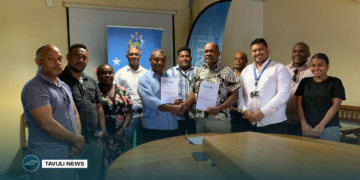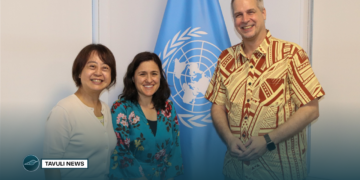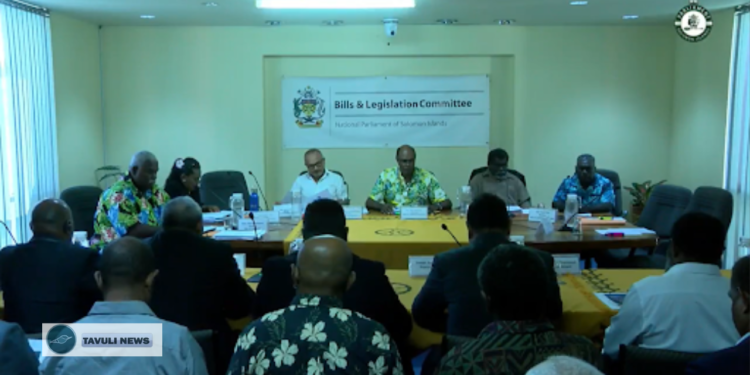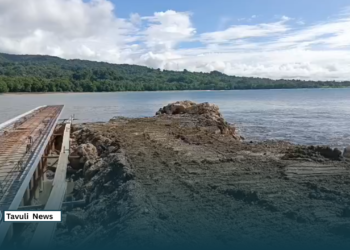TSI urges wider consultation on SEZ Bill 2024, citing land rights, transparency, and infrastructure concerns.
Transparency Solomon Islands (TSI) has expressed concern regarding the early announcement by Prime Minister Jeremiah Manele that his government intends to table the Special Economic Zones Bill 2024 during the upcoming Parliament meeting scheduled for 24 April 2025.
According to local media reports, Prime Minister Manele confirmed during a press conference at the Office of the Prime Minister and Cabinet that the government plans to table two Bills: the Special Economic Zones (SEZ) Bill 2024 and the Mineral Resources Bill 2023. He also announced that the Clerk to Parliament has been advised to notify Members of Parliament about the next sitting.
TSI believes that broader consultation is needed on both proposed laws before they are brought to Parliament. According to TSI, both Bills could have significant implications for natural resources, resource owners, and the country’s land tenure system. The organisation emphasised that the legislation may also require consequential amendments to existing laws, which must be thoroughly considered.
TSI notes that the Parliamentary Bills and Legislation Committee has not yet completed its public hearings and consultations on the SEZ Bill 2024. The group highlighted the importance of this process in ensuring thorough legislative scrutiny. “The report produced by the Committee after concluding its hearing provides an important part to this process – Committee observation and recommendations,” TSI stated.
TSI further noted that the hearings on the SEZ Bill 2024 have been suspended to allow the responsible ministry to comply with certain requirements. TSI believes the government should allow the Committee adequate time to complete this process.
During its appearance before the Committee, TSI raised multiple concerns about the SEZ Bill and called for its withdrawal. “TSI noted that other stakeholders have since called for the withdrawal of the SEZ Bill 2024 as well,” the organisation said.
One major issue raised by TSI involves the procedures for acquiring land for special economic zones under the Bill. TSI argued that the proposed procedures do not align with current provisions in the Lands and Titles Act. “Lest we forget, majority of land in the country is customary land therefore any laws that will adversely affect landowners, the interest of landowners and resource owners must be protected,” TSI stated.
TSI also voiced concerns about the broader implications of the Bill, referencing ongoing issues with resource exploitation linked to logging and mining practices. The organisation said that the SEZ Bill vests substantial authority in the Minister, and described the legislation as resembling a “land grab proposal.”
Concerns were also raised by other stakeholders, including potential risks of money laundering, exploitation, and foreign interest dominance. While the Bill aims to attract investment and decentralise economic activity, TSI and others believe that land ownership and supporting infrastructure must be given more attention.
TSI pointed to Clause 7 of the SEZ Bill, which outlines potential areas for special economic zones, including agriculture, fisheries, manufacturing, science and technology, and tourism. The organisation argued that all these sectors require essential infrastructure such as water, electricity, storage facilities, shipping, and airline services—services which are currently unreliable in many provinces.
“It would be negligence on the part of the government to pass this SEZ Bill 2024 knowing that it lacks the necessary supporting infrastructure,” TSI said.
TSI also raised concerns about the structure and functions of the proposed SEZ Authority, particularly the need for transparency and accountability in managing the Special Economic Zone Fund. “There must be strengthened provisions for regular audits especially given that the Bill provides that the Authority has custody of the Special Economic Zone Fund, which is not part of the Consolidated Fund,” TSI added.
During the Committee hearing, former Governor General Sir Frank Kabui, appearing with the Isabel provincial premier, also shared concerns about the practical implementation of the Bill. Drawing from his own government experience, he noted that legislation often appears strong on paper but suffers from poor implementation. TSI echoed this concern, noting that it had raised similar points on various occasions.
TSI and other stakeholders also pointed out that limited time had been given to review the SEZ Bill 2024. It was revealed during hearings that key stakeholders, including Solomon Water Authority, CEMA, and Solomon Ports Authority, were not consulted during the early stages of drafting.
TSI acknowledged the important role of the Bills and Legislation Committee and called on the Government for National Unity and Transformation (GNUT) to allow more time for the Committee’s hearings and not to rush the Bill through Parliament. It also urged that the Mineral Resources Bill 2023 undergo a public hearing before being tabled.
“TSI also calls the Legislature to stop passing laws that ease extraction of resources at the cost of customary landowners and resource owners’ rights. Pass laws for the peace, order and good government of Solomon Islands. Laws that will empower and protect the rights and interests of our citizens, landowners and resource owners. The people of Solomon Islands deserve better. Stop legitimizing further plunder of our natural resources,” the organisation stated.
In his announcement, Prime Minister Manele expressed hope that Parliament will pass both the Special Economic Zones Bill and the Mineral Resources Bill during its April-May sittings.
SOURCE: Transparency Solomon Islands
































![Chovohio [left] and Charivunga [right] confluence, to create a dam for sediment control](https://www.tavulinews.com.sb/wp-content/uploads/2025/04/Add-a-heading-43-360x180.png)

















































